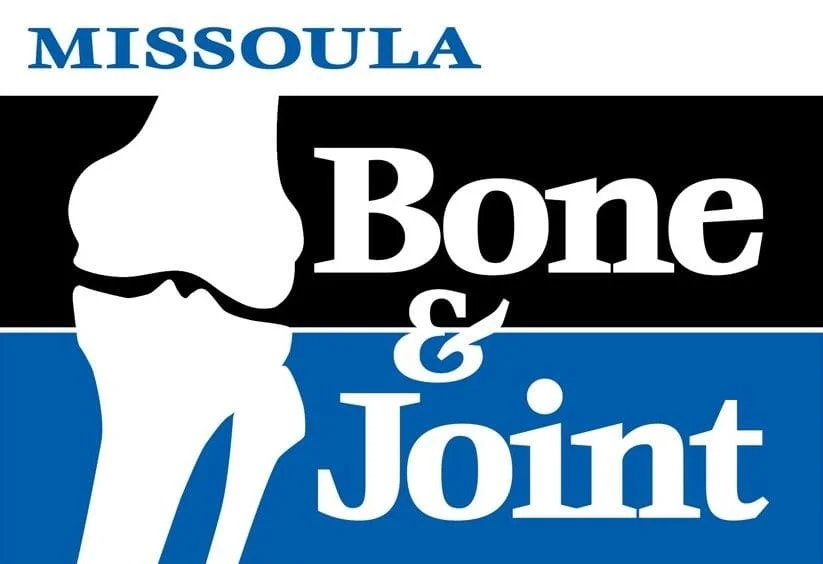Our athletic trainers (ATs) work as an extension of our Missoula Bone and Joint Sports Medicine Team providing service to the community at high schools, sporting event sidelines, and in our clinics. Our certified ATs are highly skilled health professionals who work under a physician’s direction to provide optimal healthcare for athletes. They know how to help reduce the risk of injuries, provide care for a sudden injury and guide the entire course of recovery and return to play.
By working with our ATs, everyone involved in the health, safety, and well-being of all athletes, school administrators, team physicians, coaches and parents, can have assurance that an individual who has the knowledge, skills, responsibility and commitment to all their athletes. Having a licensed AT available for emergencies ensures athletes receive the highest standards of care when they need it.
Athletic Training Services
Athletic Trainers are recognized by the American Medical Association (AMA) as allied healthcare professionals. The AMA, as well as the National Federation of State High School Association (NFHS), recommend an AT be present at all schools and sports events.
Working to keep your athletes on top of their game, our ATs provide services such as:
- Coverage for all levels of competitions and events
- Athletic training room responsibilities and event coverage for practice, games, and tournaments.
- Initial injury evaluation, prevention, rehabilitation
- Athletic training program management including assisting in the creation of site-specific Emergency Action Plan, personal safety equipment evaluation, and athletic training supply management
- Immediate first aid and emergency care
- Expedited referral to the appropriate healthcare professional
- Priority scheduling is provided at our sports medicine physicians’ offices for an evaluation
- Continuity of care through the entire injury/recovery process
Individual Services
On-site special event coverage is available to community-based participants and includes athletic trainer(s), medical supplies for the prevention and treatment of injuries, emergency medical supplies, and emergency action plans. We can customize all of our programs to meet the needs of your athletic event.
Athletic training coverage options include:
- Individual Games
- Tournament Games
- Sports Camps
- Annual Contracts
- Seasonal Contracts
What to expect from our staff:
Our athletic trainers are nationally certified and state-licensed healthcare professionals that provide acute medical care ranging from concussions to weather-related illness and all things musculoskeletal. Our AT also manages appropriate return-to-play decisions for musculoskeletal injuries and concussions. ATs on site will also work with athletes and families in navigating further medical care.
Athletic trainers bring their supplies to events. If taping is expected, teams should provide tape. Ice should be supplied by the event or tournament. Our ATs will typically arrive 15 minutes before posted time.
Request Athletic Training Services
For information about how our ATs can provide medical coverage at your sporting events for kids, teens, or adults, please complete this form to Request Missoula Bone & Joint Athletic Training Services.
We typically schedule ATs three to four months out. The sooner you submit your request, the more likely we will be able to cover your event. If event times change, we require a two-week notice to adjust staff schedules without penalty.
Emergency Plans, Protocols, and Education
Athletic trainers are equipped to care for athletes with serious sports injuries and conditions, which can include heat illness, cardiac events, and brain and spinal cord injuries that can be life-threatening if not properly managed.
In the case of a life-threatening medical emergency, the Emergency Action Plan (EAP) will be activated. The EAP is specific to each site and is created and practiced, ensuring the quickest and most effective response to an emergency by all staff and personnel.
An AT will work with each site and their staff to:
- Create the EAP
- Put in place specific protocols for dealing with different situations
- Educate every staff member on what their roles/responsibilities are in the event of an emergency
Concussion Management and Return to Play
Athletic trainers play an important role in recognizing, assessing, and managing concussions including supporting critical return-to-play decisions. Our team offers concussion management and return-to-play guidance for athletes. Through this, our ATs will:
- Educate and counsel coaches, parents, and athletes about concussion prevention and management
- Refer to the appropriate physician for diagnosis and participation clearance in case of a concussion or suspected concussion
- Supervise the return-to-play protocol established by the treating physician
Sports Medicine Program
The Missoula Bone & Joint Athletic Trainers are managed by Bob Botkin, PT/LAT, Sports Medicine Director, and Dustin Burton, LAT, Sports Medicine Program Supervisor. The overseeing physician liaison is Dr. Rob Amrine, MBJ’s primary care sports medicine physician.
You may also interact with one of our ATs in the clinic in their role as a Physician Extender. This position educates patients about home exercise programs that are prescribed by the provider, provides pre- and post-op education, and crutch/gait training. We also employ ATs in various capacities, including our physician clinics as orthopedic assistants and other subspecialty services in the MBJ Practice.
Sports Medicine Partnerships
Missoula Bone & Joint is the official sports medicine team of the Missoula PaddleHeads
Missoula Bone & Joint works with various sporting organizations to provide sports medicine coverage
- Dig Missoula Volleyball Tournament
- Missoula Mavericks Baseball
- Missoula Marathon
- Missoula Youth Football (MYF)
- Zootown Parks and Rec Pickleball Association
High School Athletic Training Coverage (connect with your Athletic Trainer)
Alberton High School
Arlee High School
Big Sky High School
Charlo High School
Drummond High School
Florence-Carlton High School
Frenchtown High School
Granite High School
Hellgate High School
Hot Springs High School
Loyola Sacred Heart Catholic High School
Mission High School
Seeley-Swan High School
Sentinel High School
St. Regis High School
Superior High School
Valley Christian High School
Tayleigh Talmadge, LAT
Learn more about athletic trainers:
NATA (National Athletic Trainers’ Association)
Difference Between Athletic Trainers and Personal Trainers
